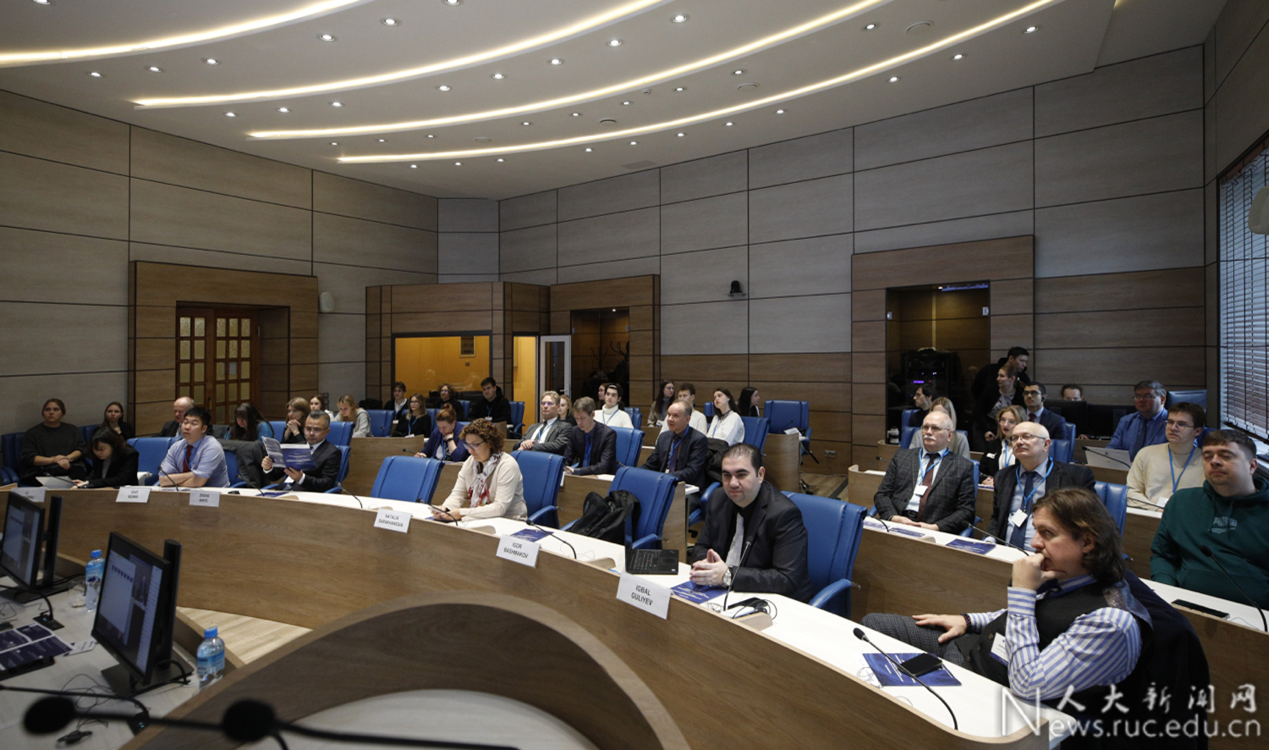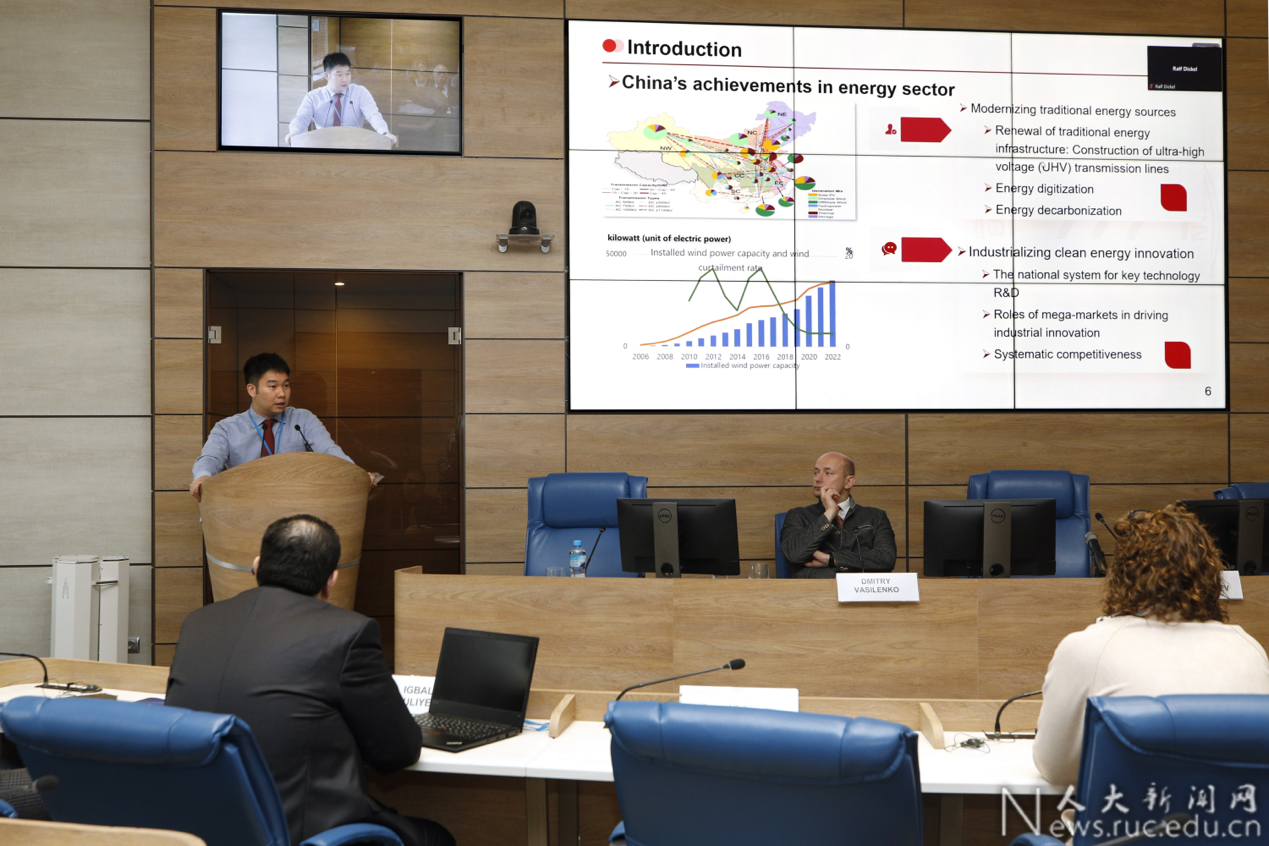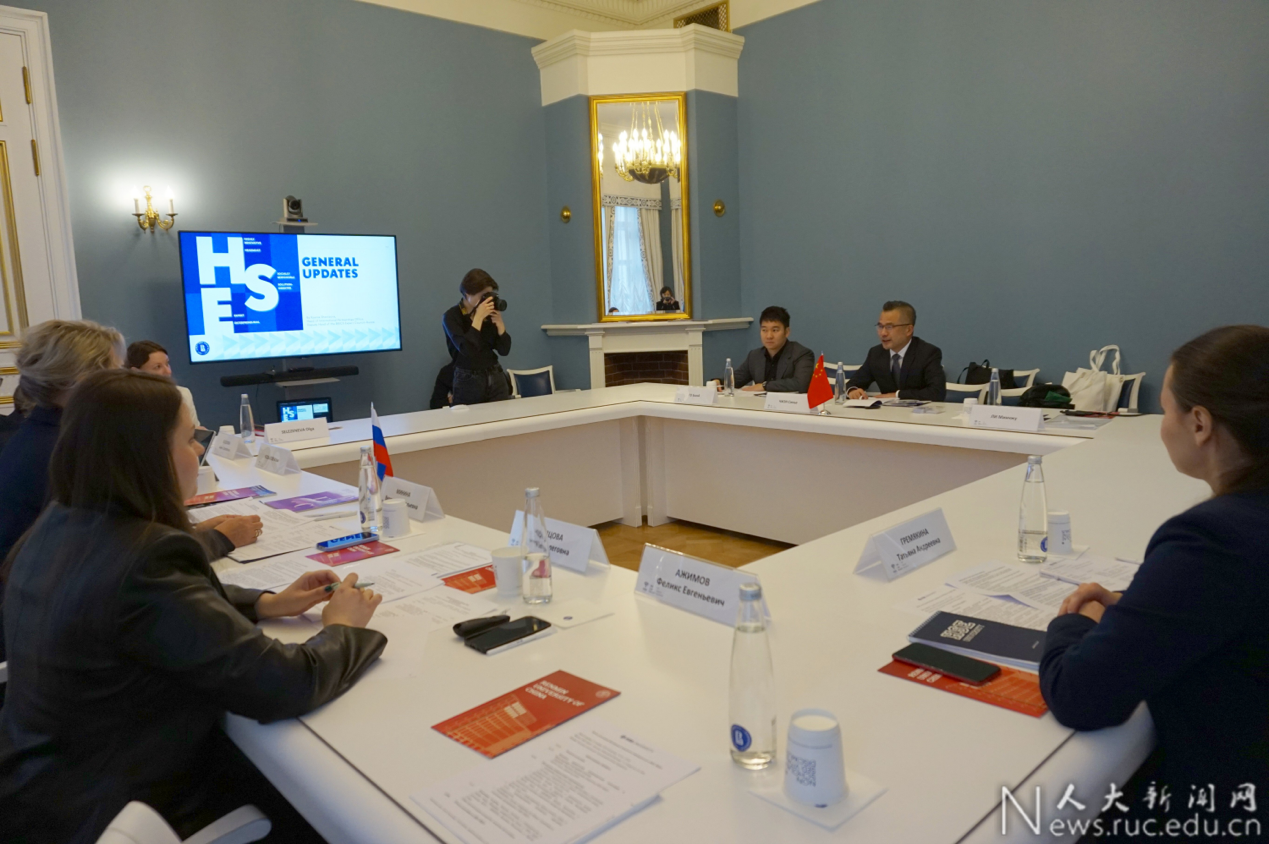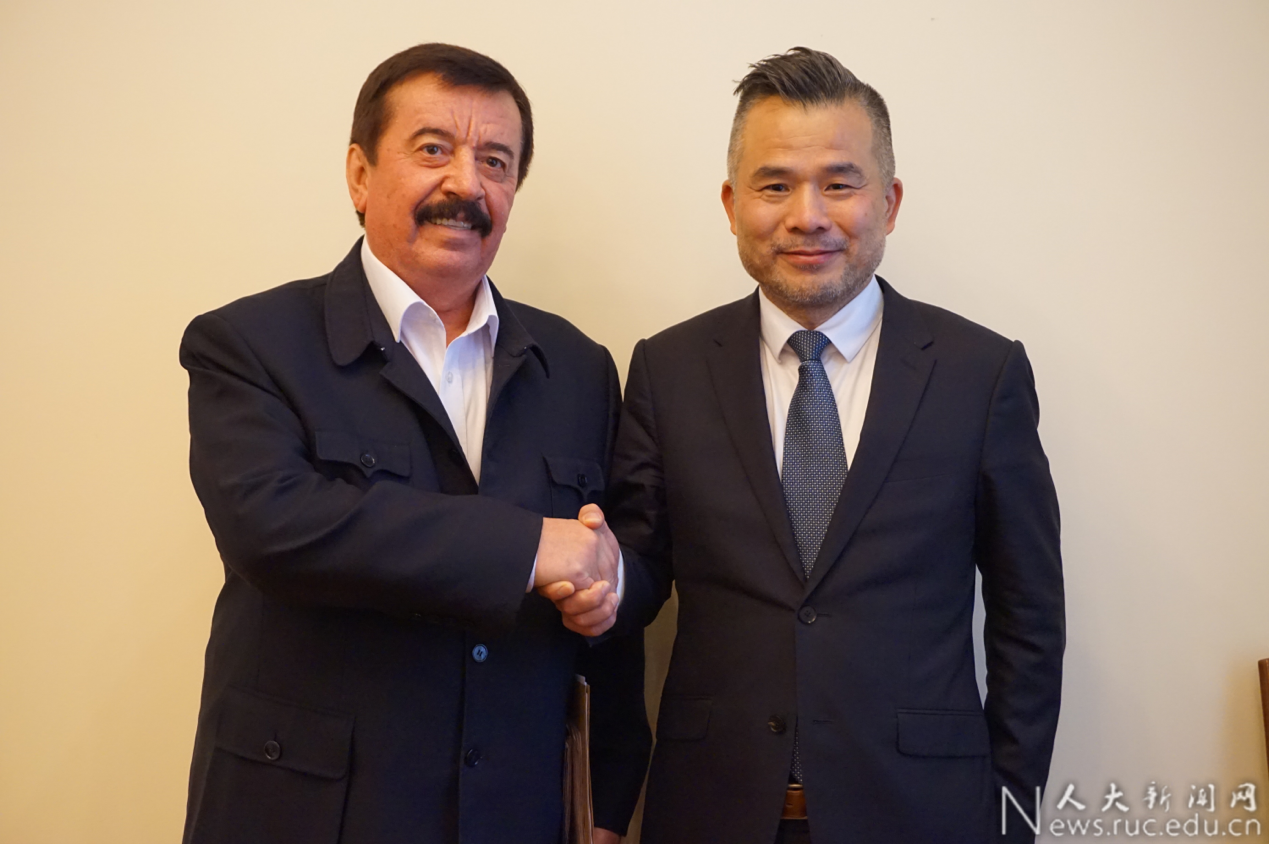A delegation from Renmin University of China (RUC), led by Vice President Zheng Xinye, visited Russia to deepen collaboration with Russian academic institutions and participate in high-profile conferences From November 19 to 24.
The visit marked significant progress in academic, cultural, and research exchanges between the two nations, coinciding with the 75th anniversary of Sino-Russian diplomatic relations.

On November 20, Zheng Xinye attended the joint meeting of the Saint Petersburg Dialogue Forum’s Science and Education Working Group and Saint Petersburg State University. In his keynote speech, titled “Strategic Pathways for Enhancing Energy Supply in the World’s Least Developed Countries”, Zheng emphasized the importance of Sino-Russian collaboration in addressing global energy security and climate change. Participants highlighted the potential for the two countries to jointly tackle global challenges.

During a visit to Saint Petersburg State University of Economics (SPbSUE) on November 21, Zheng met with Rector Igor Maksimtsev. Zheng acknowledged the long-standing collaboration between RUC and SPbSUE, particularly through the China-Russia Advanced Economic Forum, a biennial platform that has facilitated academic, business, and policy exchanges since 2002. He proposed deepening cooperation under the framework of BRICS and focusing on global energy security and climate change. Maksimtsev expressed gratitude for RUC’s contributions and emphasized SPbSUE’s commitment to advancing academic exchanges, particularly in energy-related research.

Zheng Xinye and delegation member Guo Bowei participated in the “21st Century Energy: Economy, Politics, Ecology” Science Conference hosted by SPbSUE. Guo delivered a keynote speech on “Modernization of the Energy Industry and Global Energy Governance”, sparking insightful discussions among international experts.

On November 22, the delegation visited the National Research University Higher School of Economics (HSE). Zheng emphasized RUC’s commitment to implementing the partnership agreement signed in July and proposed initiatives such as student exchanges, dual-degree programs, summer schools, and establishing a Russian Language Testing Center at RUC.

HSE Vice President Veronika Minina expressed her support for strengthening cooperation and outlined plans to involve RUC in BRICS-themed roundtables in 2025. She highlighted the potential for collaboration in joint research, talent cultivation, and multilateral academic exchanges to train the next generation of BRICS experts.

On November 23, the delegation visited the Education Council of the Russian-Chinese Committee for Friendship, Peace, and Development, and the Financial University under the Government of the Russian Federation.
Zheng proposed closer collaboration with the council to establish mechanisms for academic exchanges, organize brand forums and scholarly events, and develop future experts in Russian language and Far Eastern civilizations. Sergey Mikhailovich Shakhray, Chair of the Russian Education Council, emphasized the council’s role as a bridge for fostering youth exchanges and strengthening bilateral ties in education, research, and culture.
Ekaterina Kameneva, Vice President of the Financial University, highlighted the potential for joint research in economic, financial, and technological fields such as digital currency, energy security, and artificial intelligence. She expressed enthusiasm for deepening cooperation to cultivate globally competitive talent.
Both sides discussed a range of initiatives, including organizing council annual meetings and academic seminars, leveraging RUC’s Shenzhen campus for collaborative projects, creating a Russian Language Testing Center, and launching joint academic competitions. These efforts aim to strengthen the academic and cultural ties between Chinese and Russian institutions.
The visit underscored RUC’s role as a leader in Sino-Russian academic collaboration. With representatives from the university’s International Cooperation and Exchange Office and the School of Applied Economics accompanying the delegation, RUC continues to advance its mission of fostering international partnerships.
Through its proactive engagement, RUC is contributing to the development of a robust academic framework that supports research excellence, talent development, and mutual understanding, further enhancing Sino-Russian relations in education and innovation.


